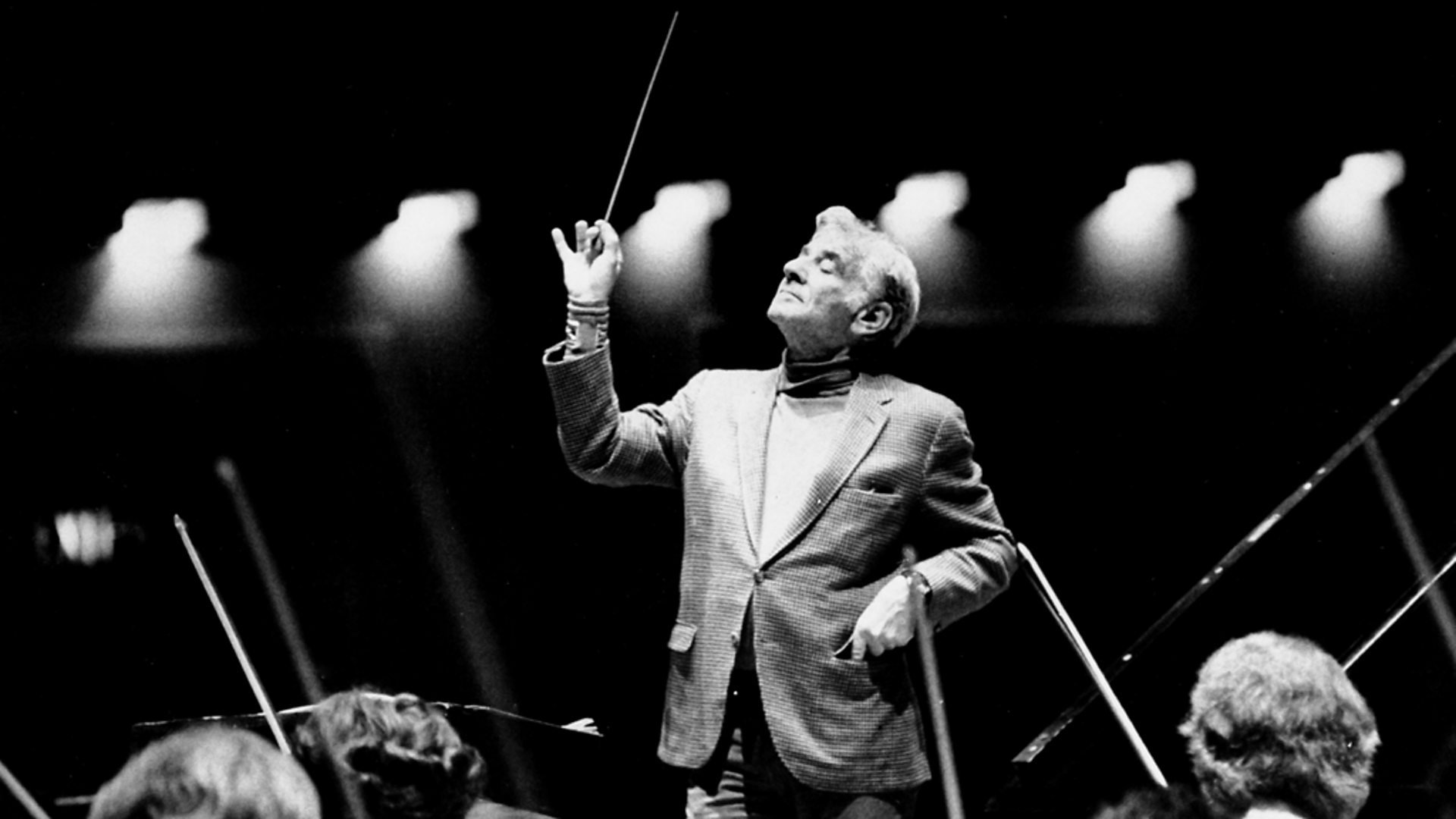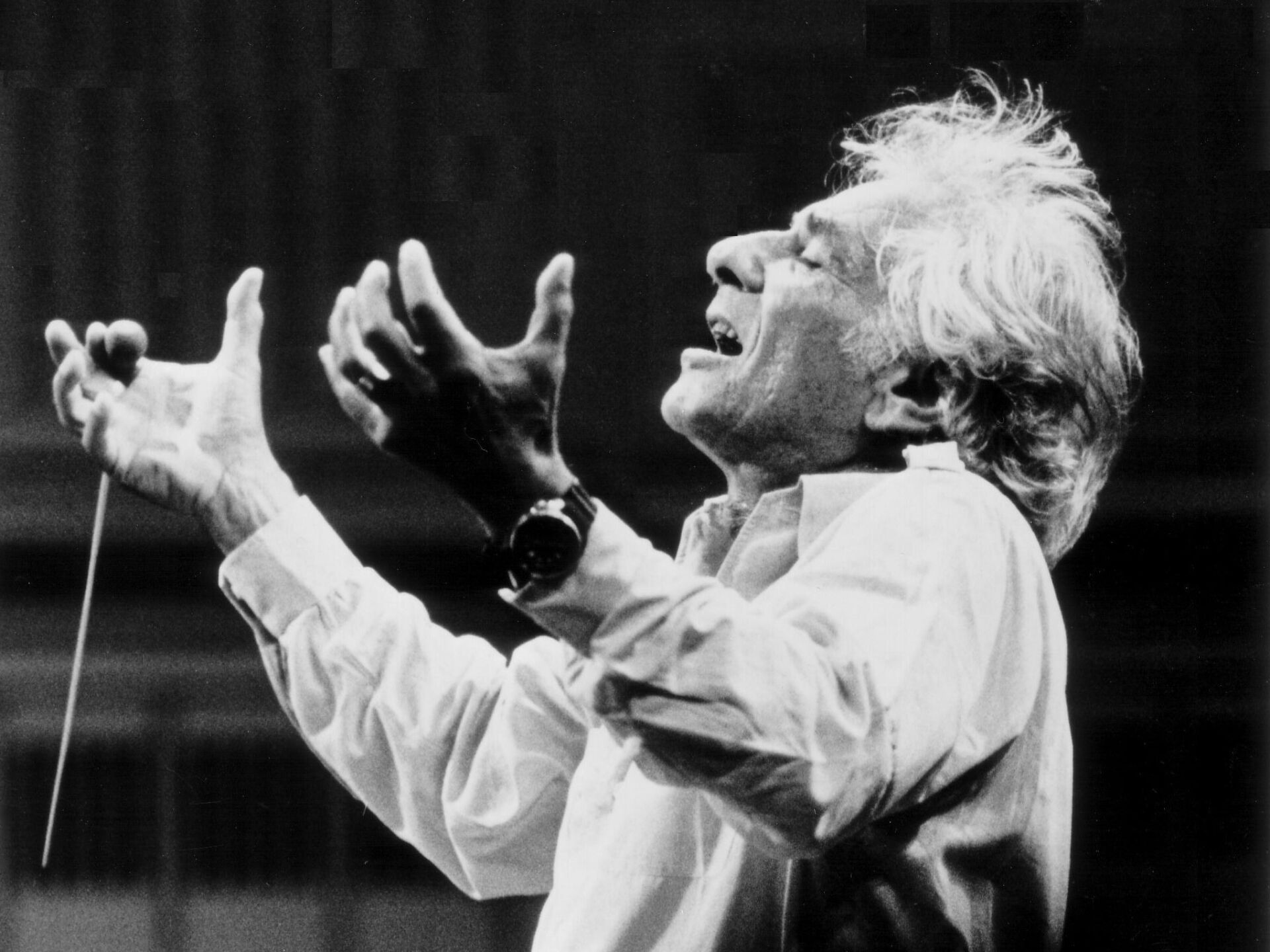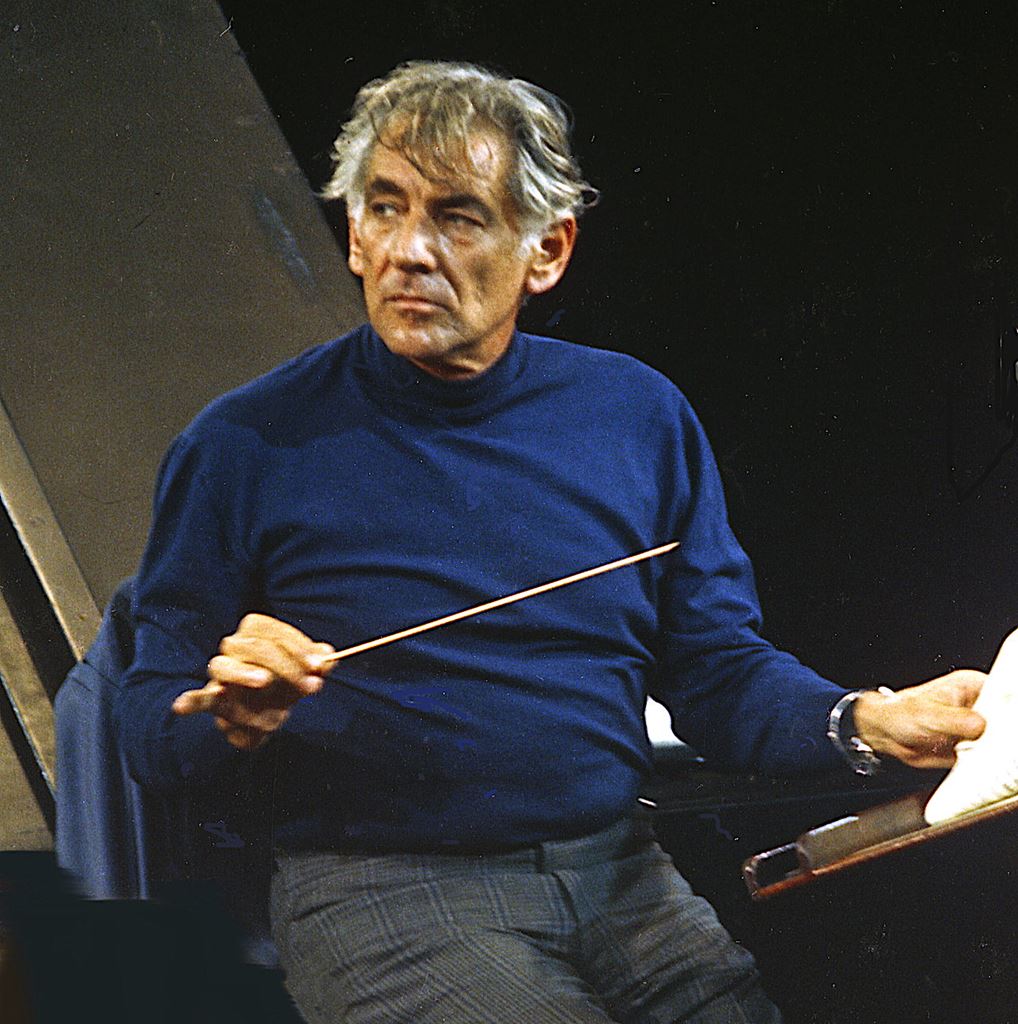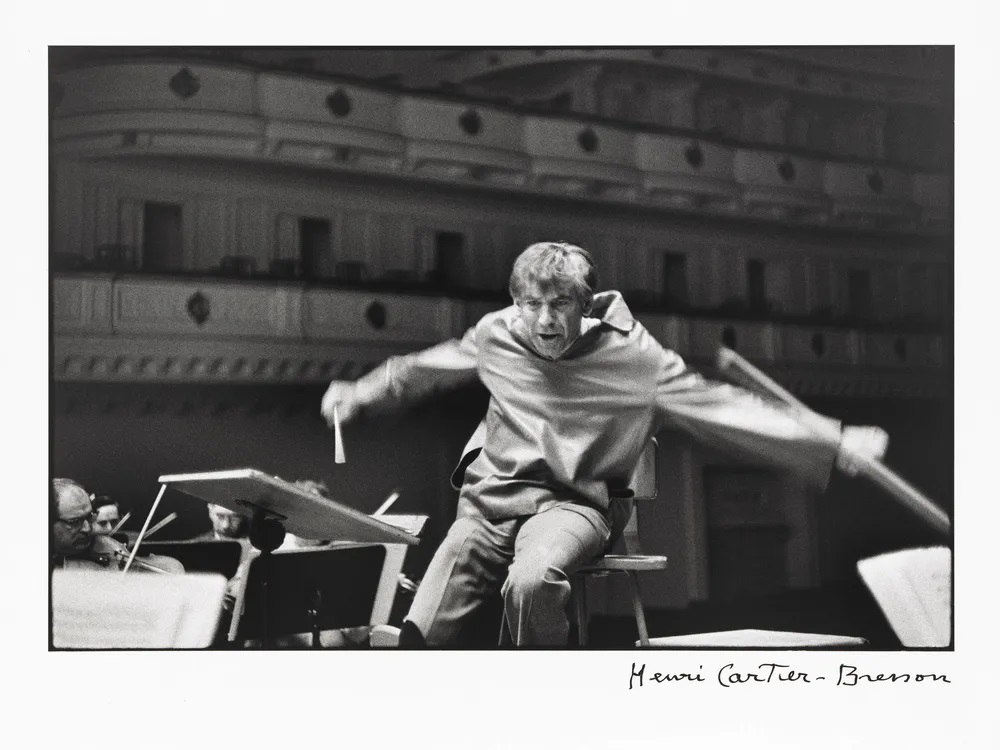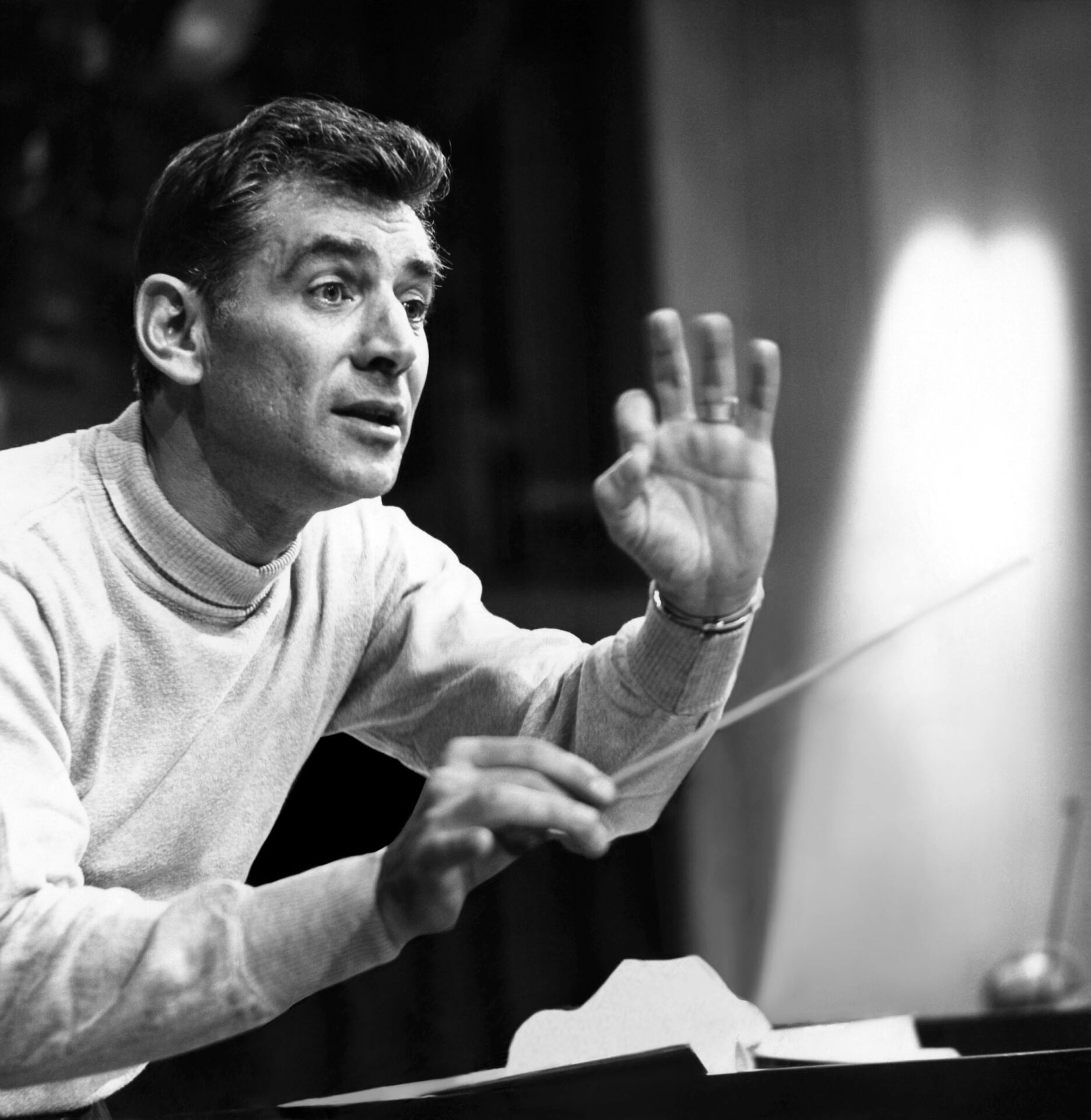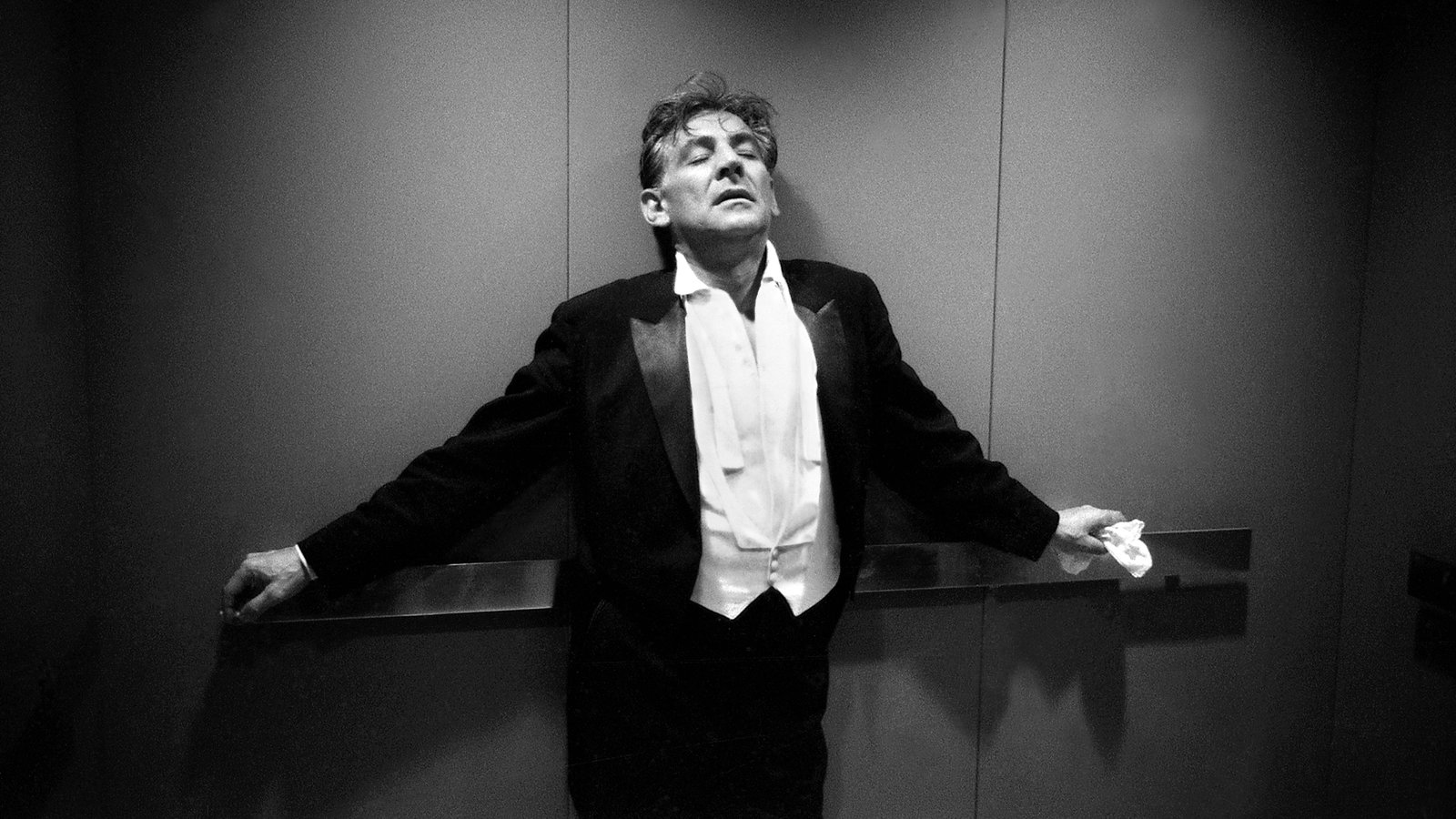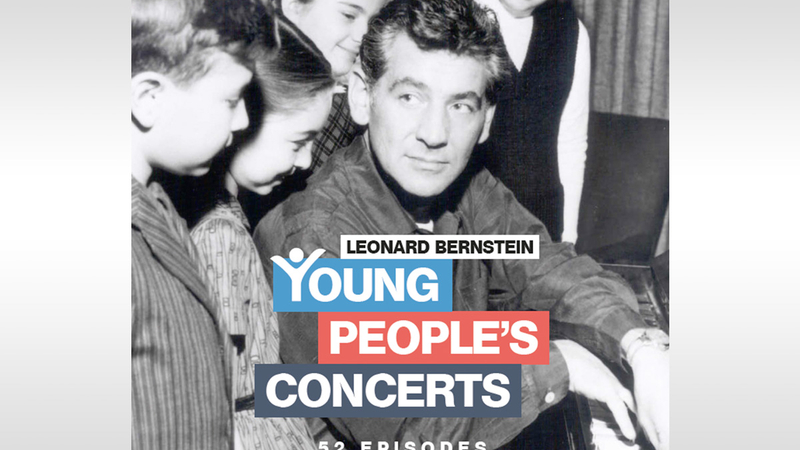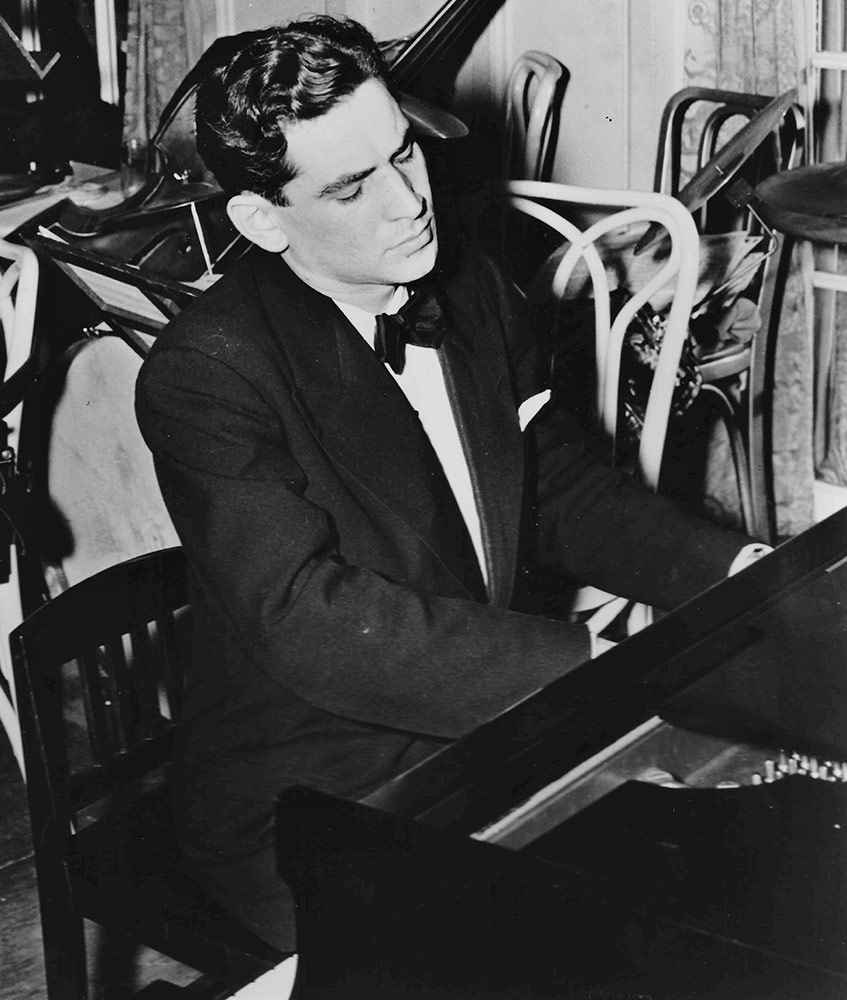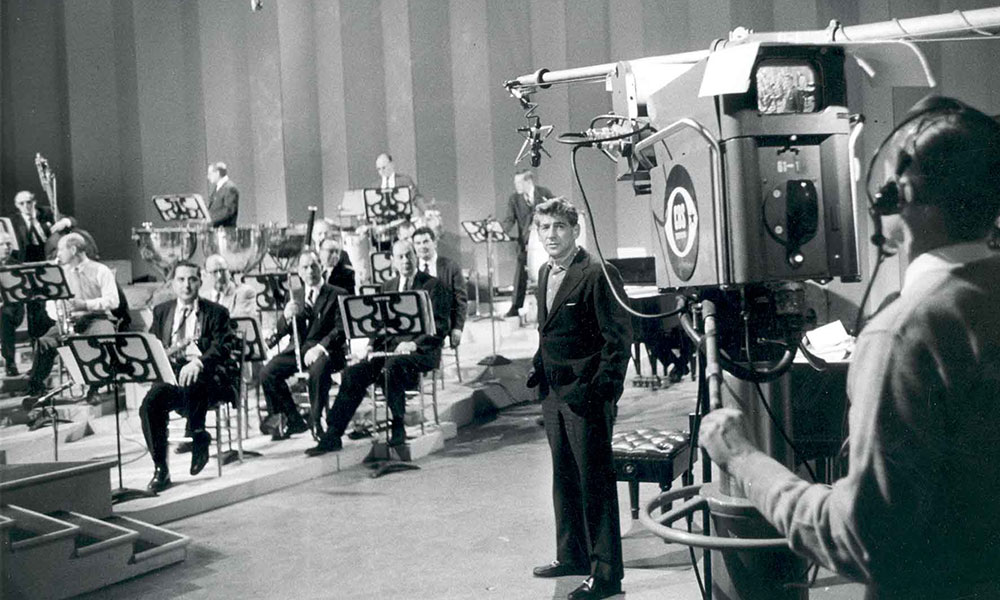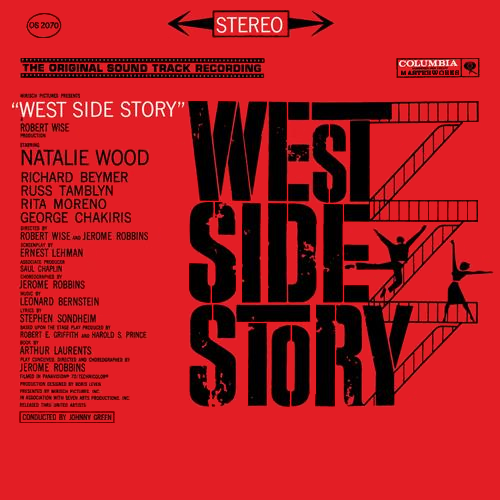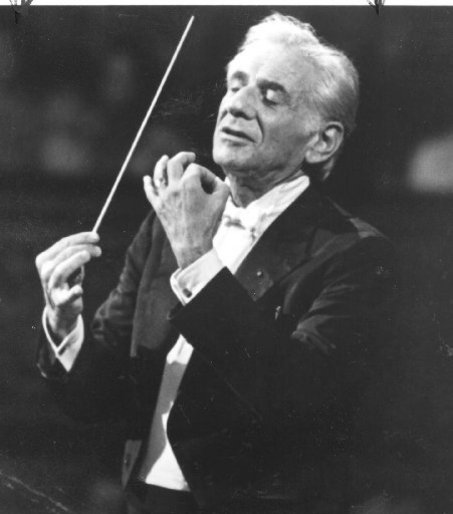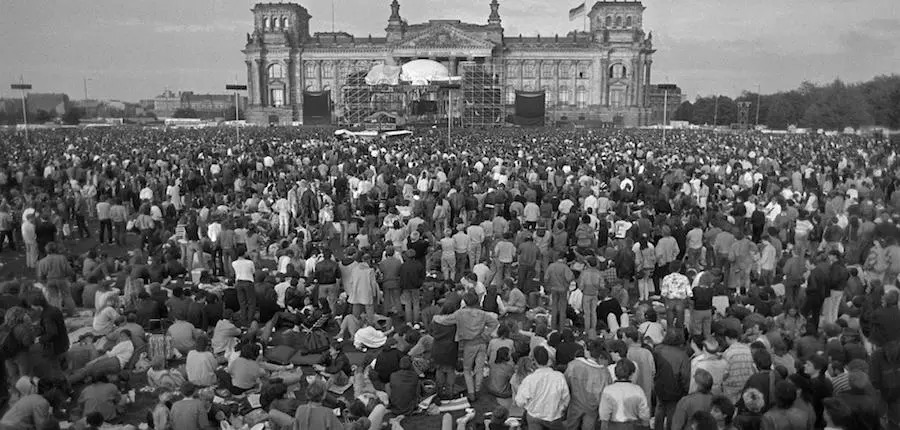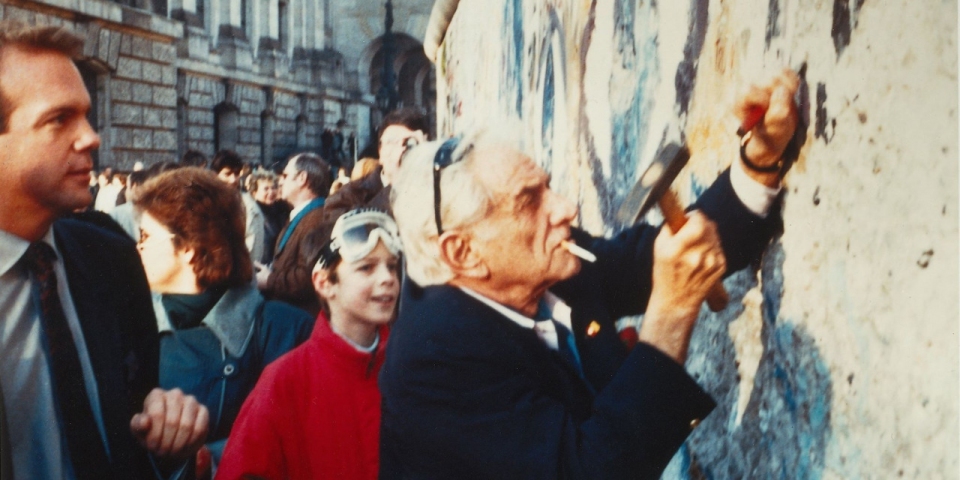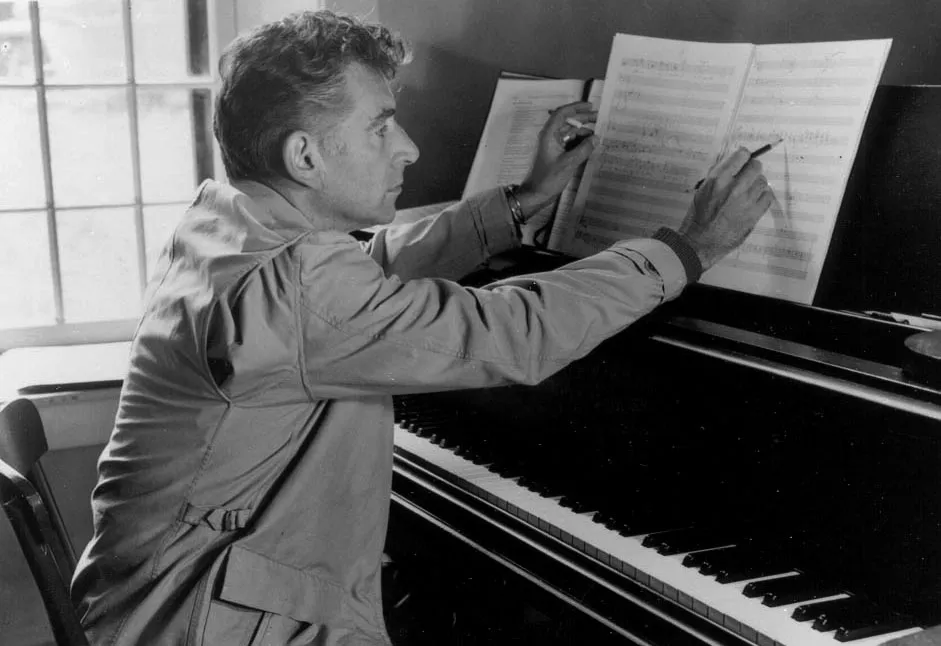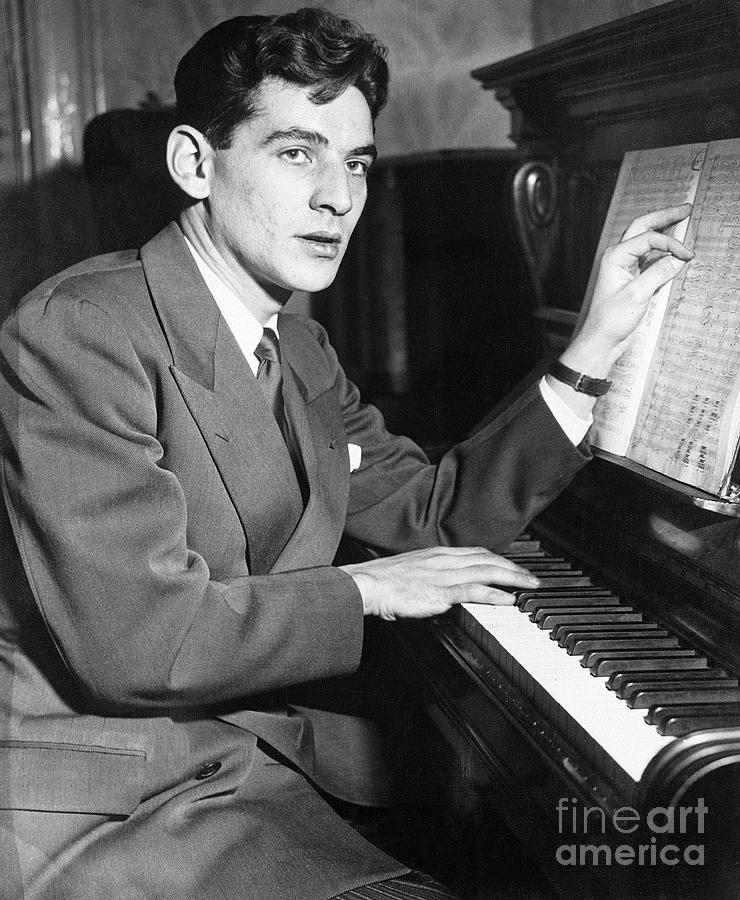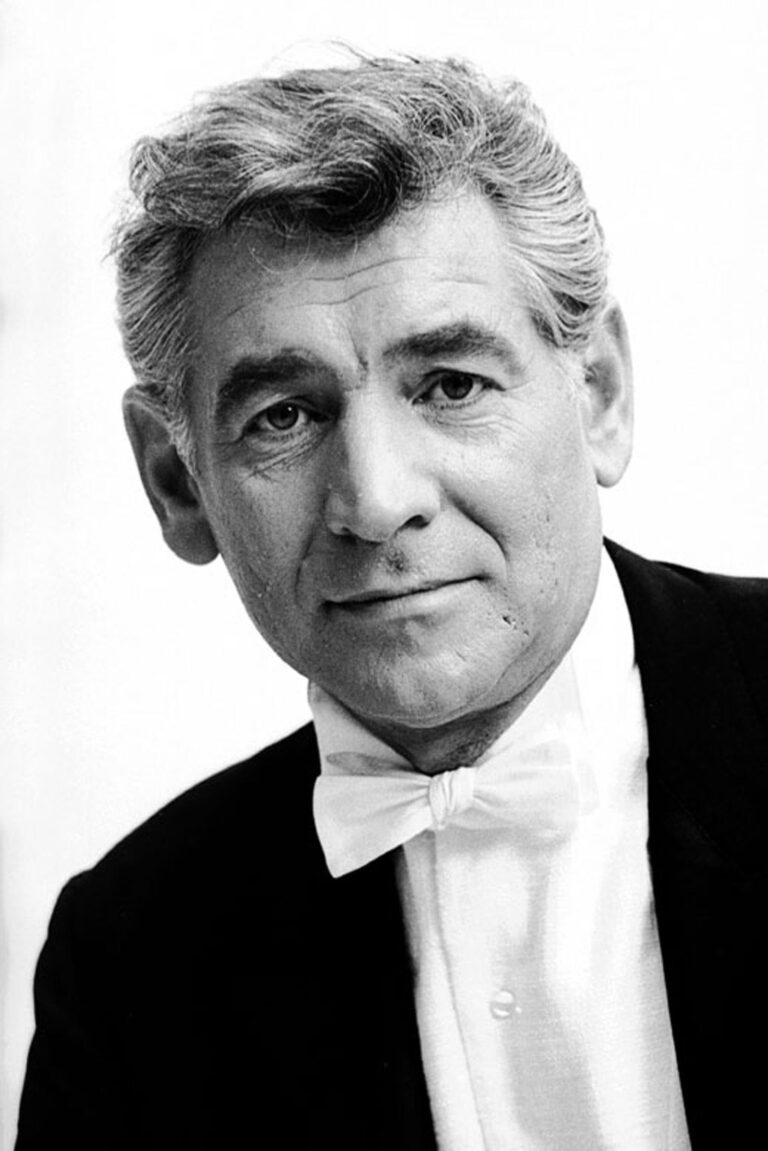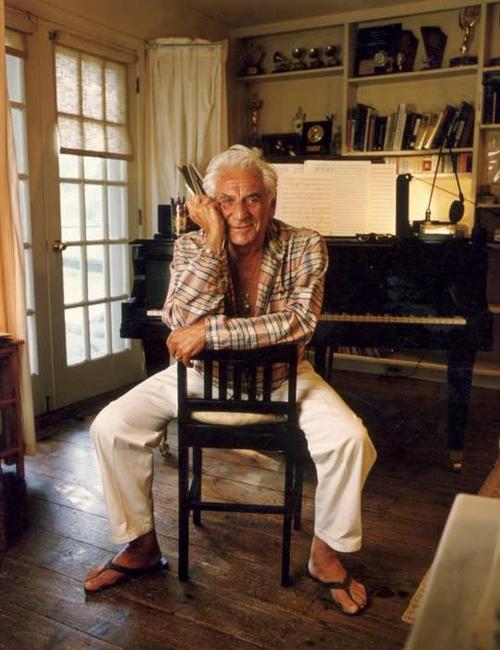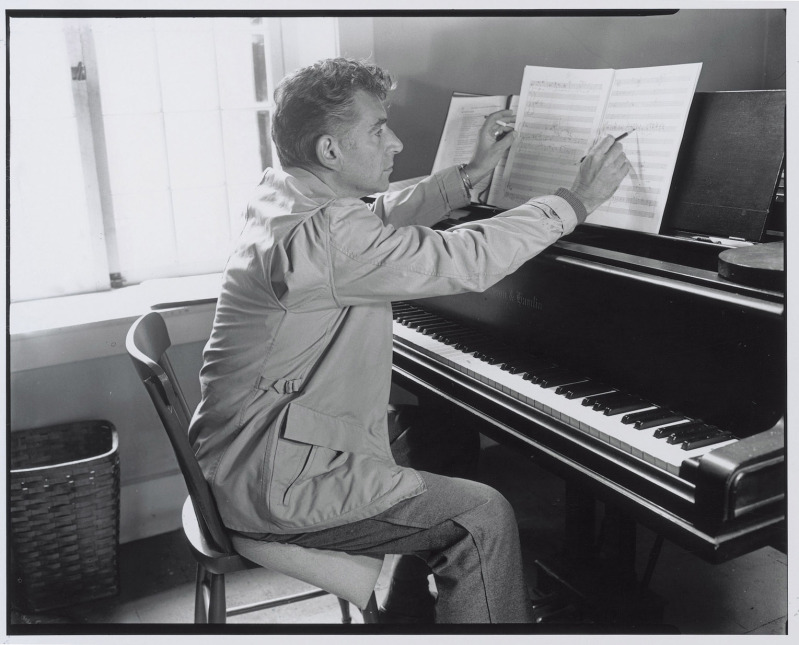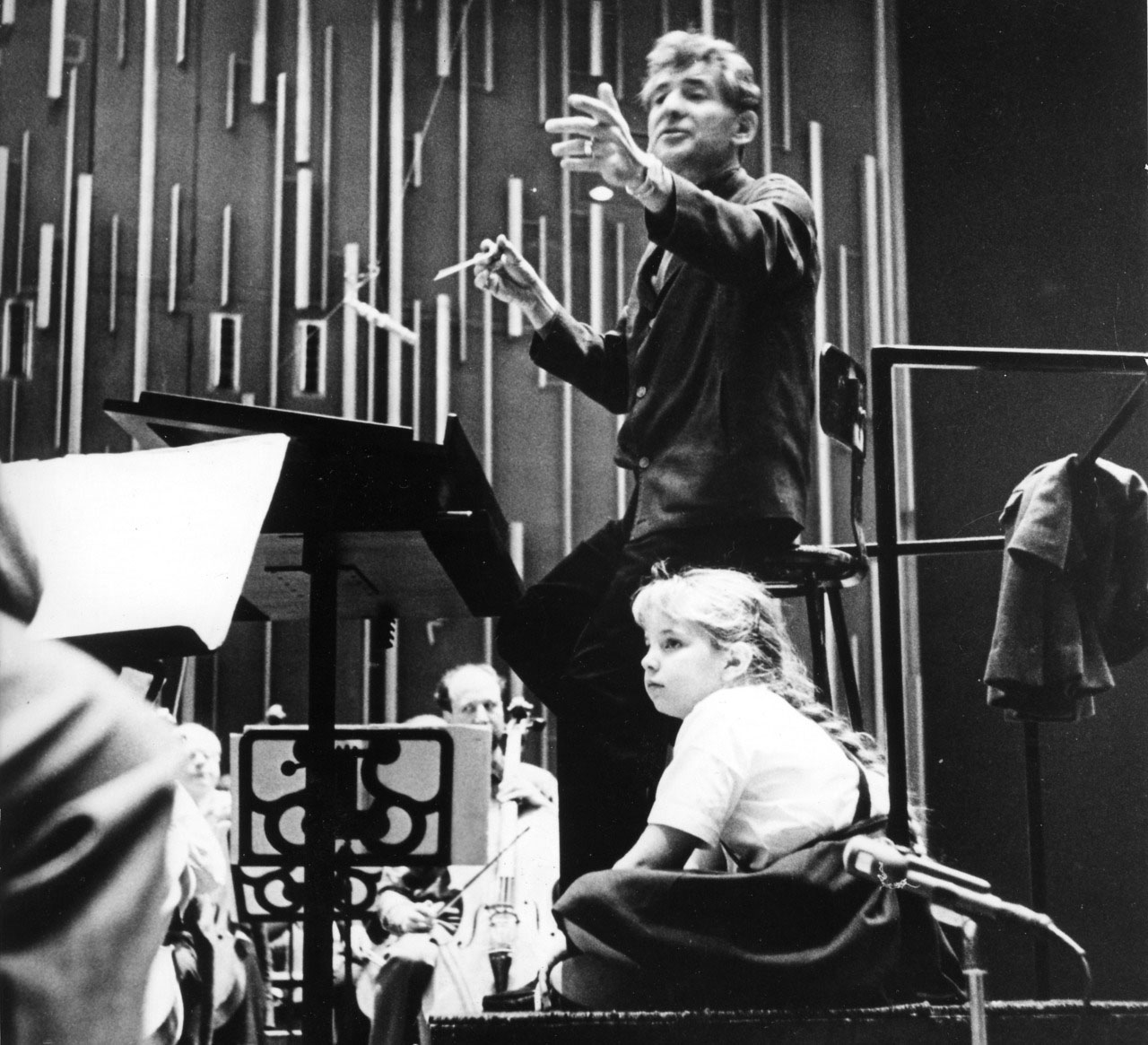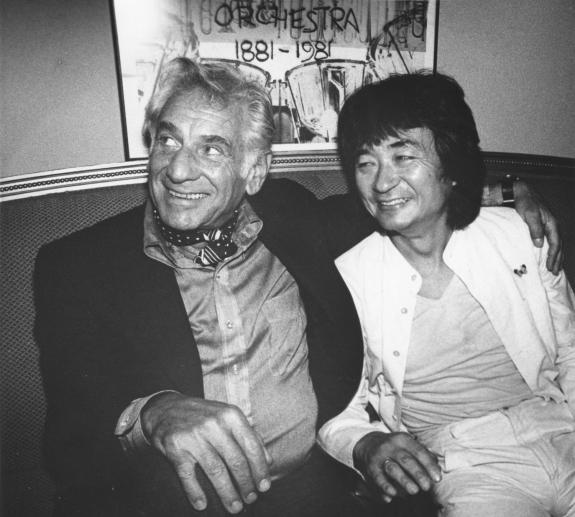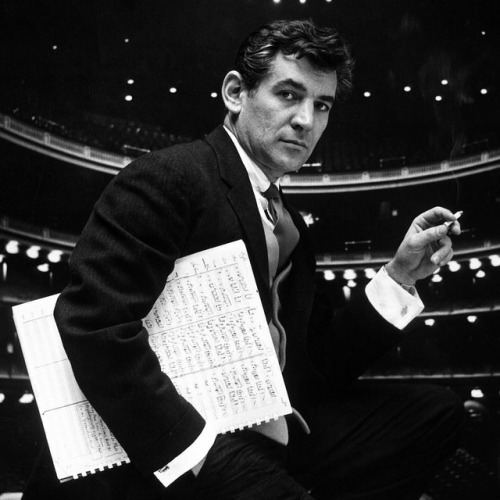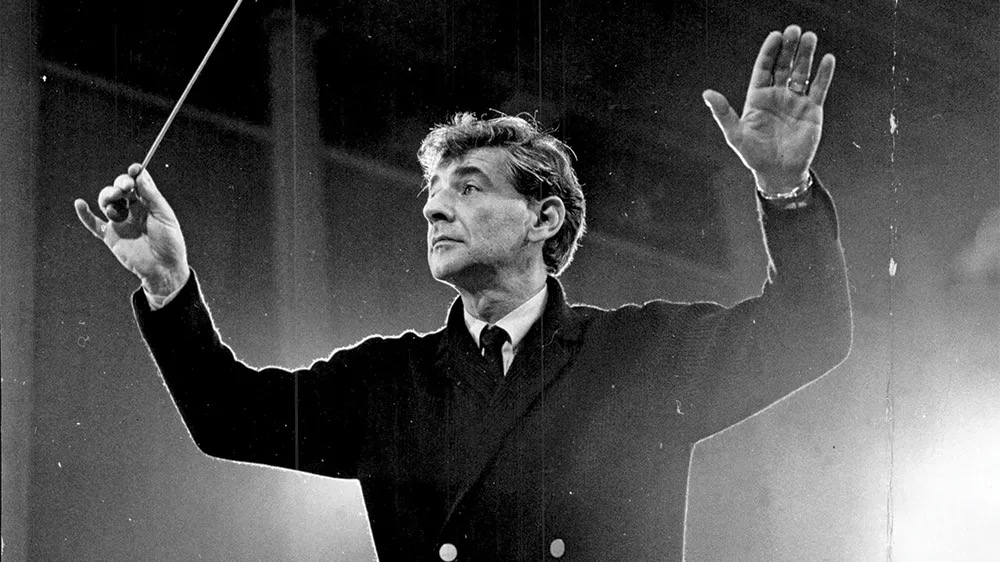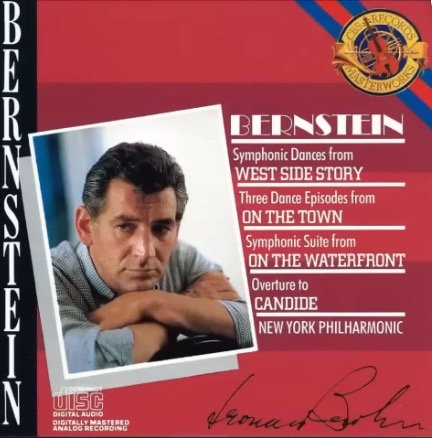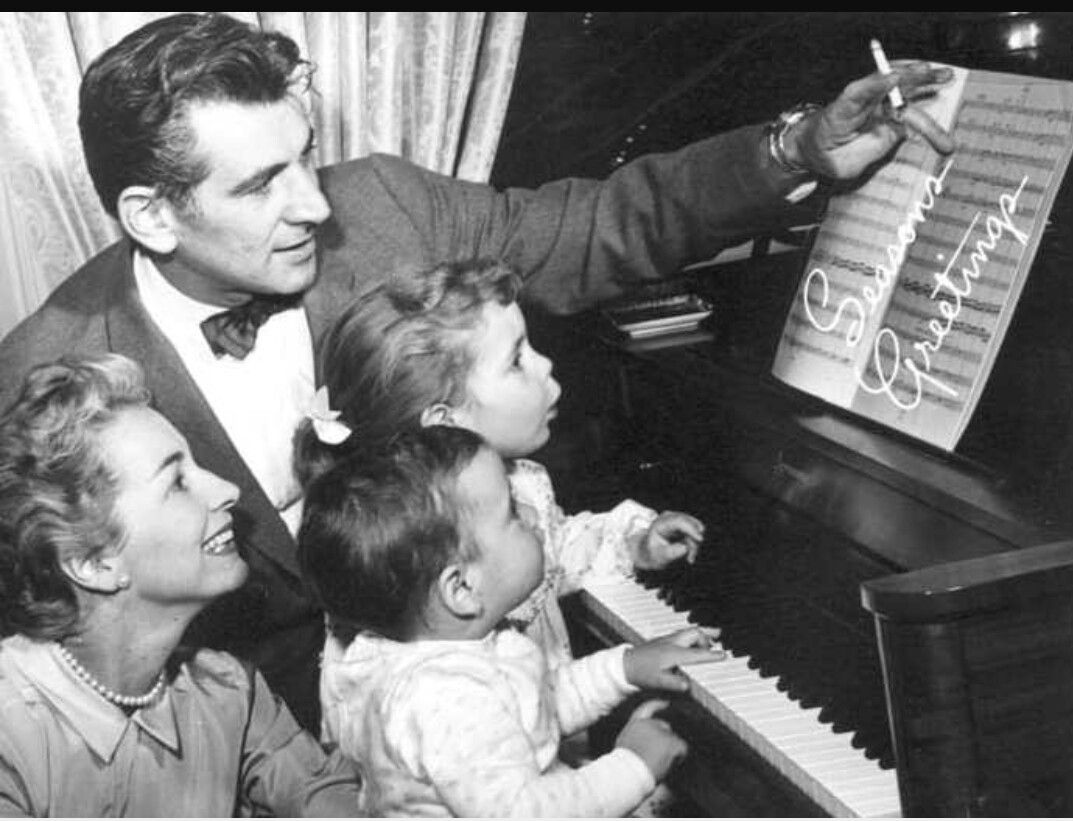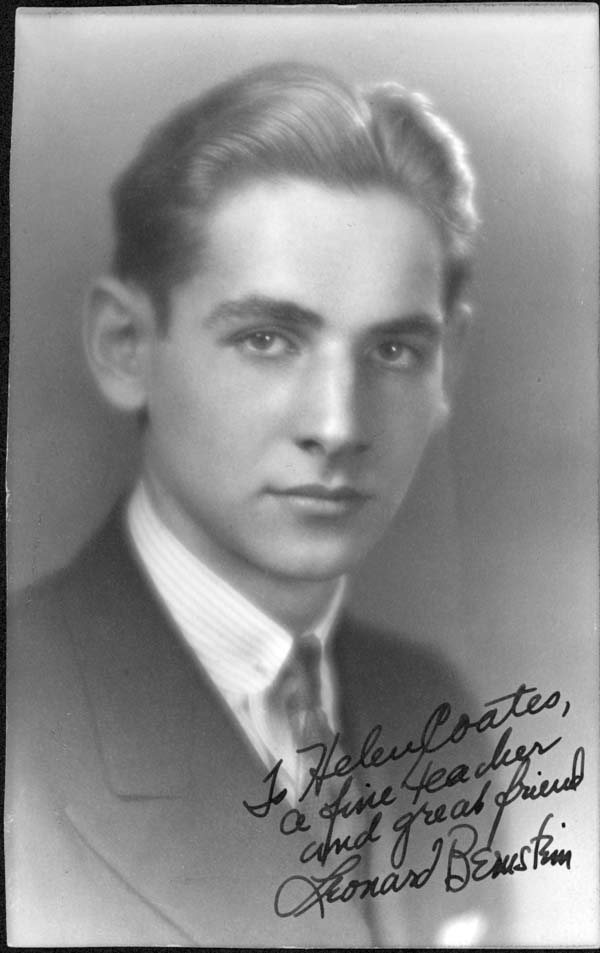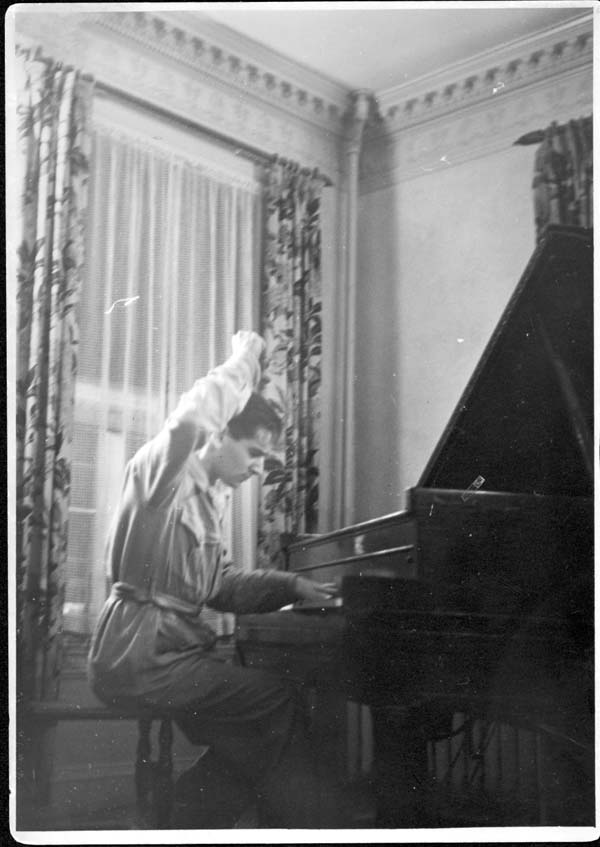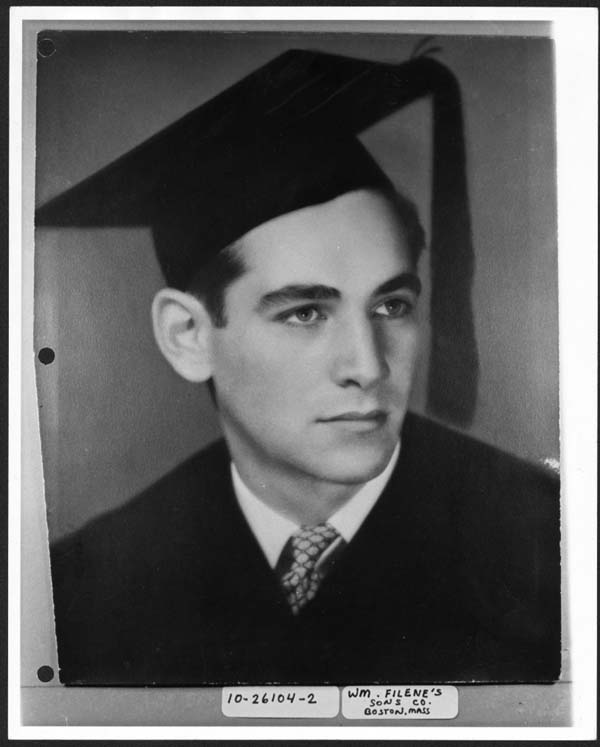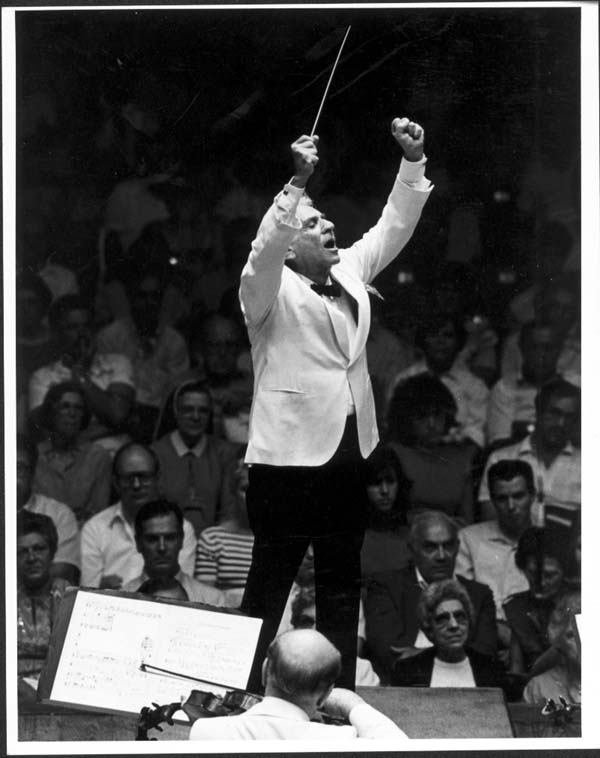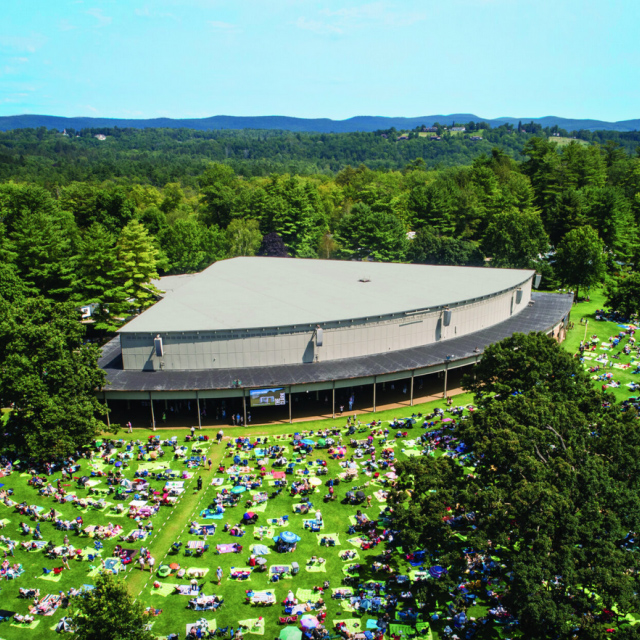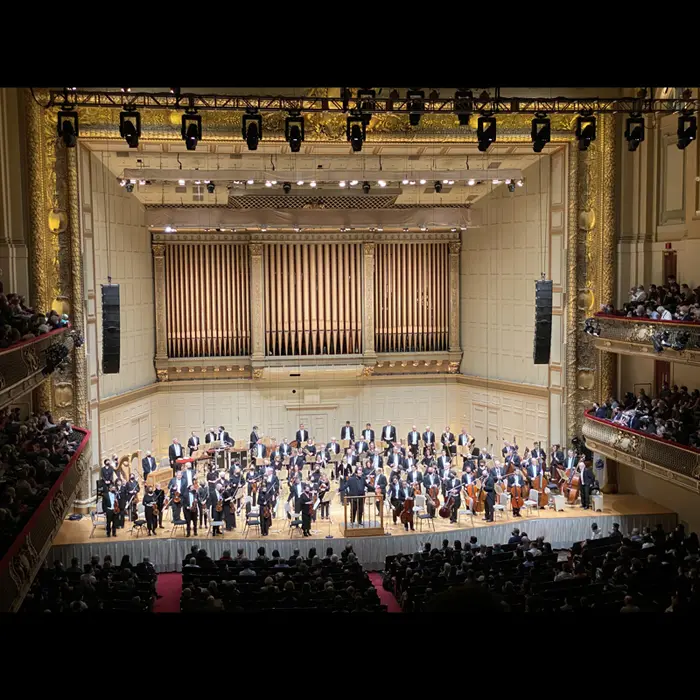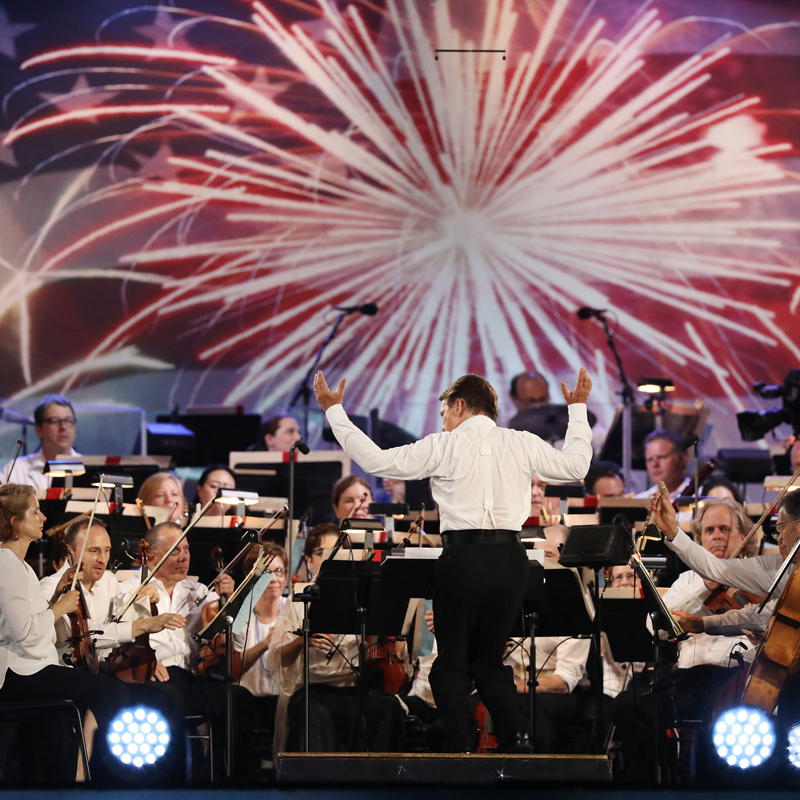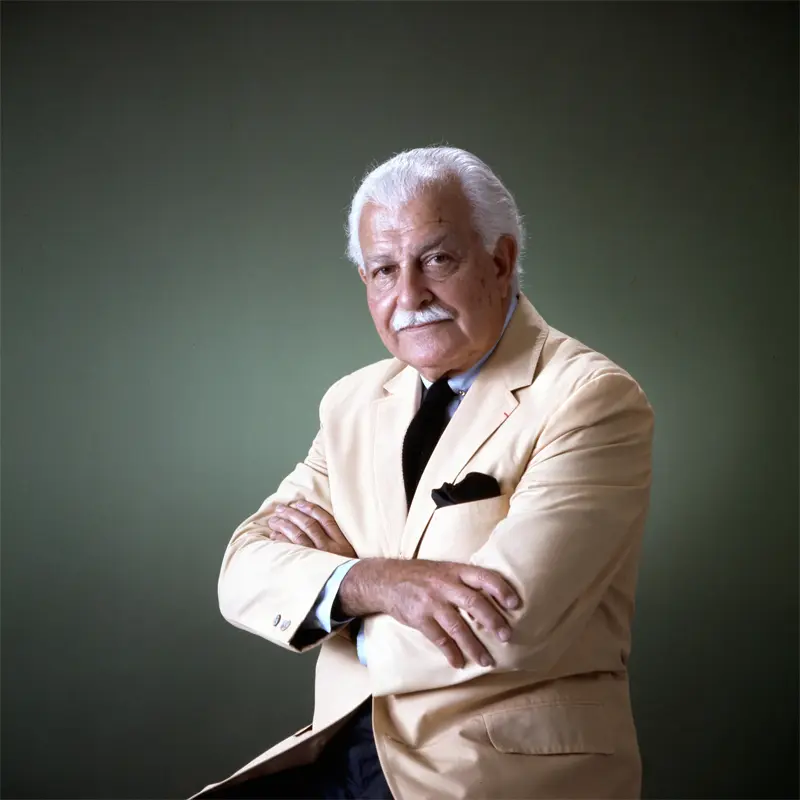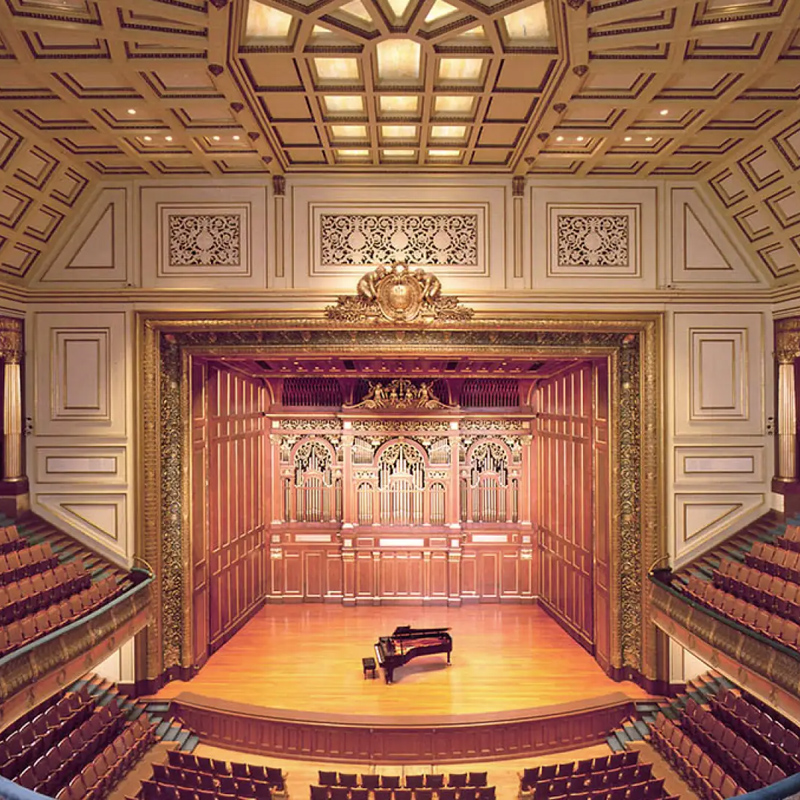Leonard Bernstein
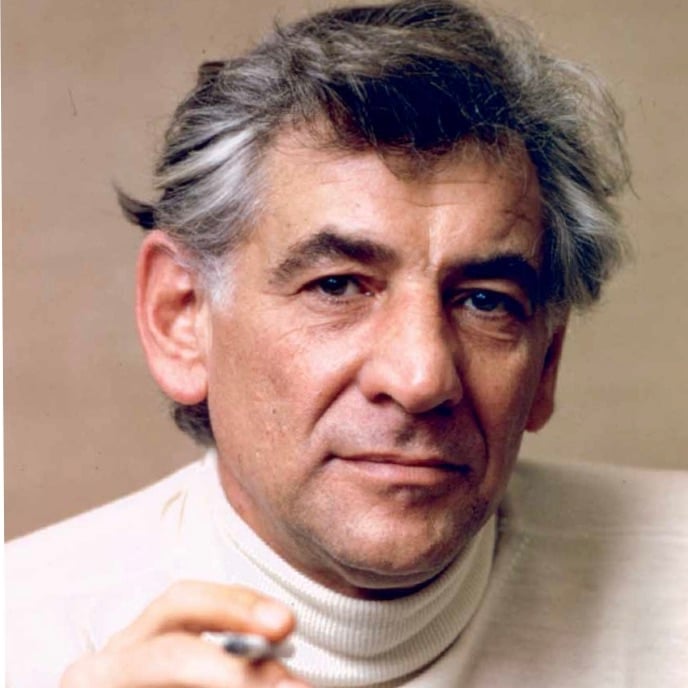
For almost eight decades, composers have lionized, critics have analyzed and biographers have summarized Leonard Bernstein’s extraordinary talents and the sweeping scope of his influence on both classical and popular music. But what’s often neglected in such heady discussions, debates and deliberations is that New England served as the bookends of his life.
From his childhood in Lawrence, Massachusetts, high-school days at Boston Latin and college years at Harvard to his directorships at Tanglewood, professorship at Harvard and conducting of the Boston Symphony Orchestra in his final concert, Bernstein was as firmly rooted in the six-state region as Boston clam chowder, Maine lobster, Vermont maple syrup and Dunkin’ Donuts.
OVERVIEW
The quintessential Renaissance man who was a composer, conductor, performer, educator and public personality in virtually equal measure, Berstein’s fusion of traditional songs, jazz and theatre elements with classical compositions – particularly the works of Gustav Mahler, Aaron Copland and Igor Stravinsky – revolutionized each genre like nothing before.
At various points in his career, he conducted the Boston Symphony Orchestra (BSO), the New York Philharmonic and the New York Symphony, a landmark achievement in and of itself. But he also composed iconic Broadway hits and was a pioneer of in terms of globalization, working hand-in-hand with the Czech Philharmonic, the Palestine Symphony Orchestra and the Vienna State Opera. For these and myriad other reasons, it’s impossible to overstate the scale of Bernstein’s impact on 20th-century music.
MUSICAL BEGINNINGS
Born Louis Bernstein in 1918, his parents immigrated to the US from modern-day Ukraine. Though his grandmother insisted that he be named Louis, his parents always called him Leonard and he took that name legally at age 18, shortly after his grandmother’s death and his graduation from Boston Latin School in 1935. To his friends and associates, he was always “Lenny.”
His earliest exposure to music was on the household radio and on Friday nights at synagogue. When he was 10 years old, his aunt left her upright piano in his family’s house; soon afterwards he began teaching himself and was clamoring for lessons. Initially, Bernstein’s father was opposed to his son’s intense interest in music and refused to allow any formal training, but within two years he acquiesced.
Bernstein had a variety of piano teachers from age 12, including Helen Coates, who became his secretary some 20 years later. By his mid-teens, he was staging performances ranging from Bizet’s Carmen to Gilbert and Sullivan’s The Pirates of Penzance at the family’s summer home in Sharon, Massachusetts, casting and directing other kids in the neighborhood.
FIRST CONCERT, DEBUT PERFORMANCE, FIRST COMPOSITION
In 1932, 14-year old Bernstein went to his first orchestral concert, the Boston Pops Orchestra conducted by Arthur Fiedler, an experience he later called “heaven itself.” That same year, he played piano in public for the first time, at New England Conservatory, and in 1934 he debuted with the Boston Public School Orchestra.
In 1935, he enrolled at Harvard where he majored in music and wrote his first known composition, “Psalm 148.” He accompanied the Harvard Glee Club, was a pianist for silent-film presentations and graduated with a bachelor of arts degree cum laude in 1939. His final-year thesis was titled “The Absorption of Race Elements into American Music.”
TANGLEWOOD, SERGE KOUSSEVITZKY
In 1940, after spending a year studying conducting at the Curtis Institute of Music in Philadelphia, Bernstein attended the inaugural year of Tanglewood (then called the Berkshire Music Center), the summer home of the BSO. There he studied with its music director, Serge Koussevitzky, and eventually became his conducting assistant. He first performed at Tanglewood in 1949 as a piano soloist with the BSO in the world premiere of his “Symphony No. 2: The Age of Anxiety,” which he dedicated to (and was conducted by) Koussevitzy. Throughout his life, Bernstein returned to Tanglewood almost every summer to conduct and teach.
NEW YORK SYMPHONY, OVERSEAS DEBUT
During the 1940s, Bernstein was busy both domestically and internationally, first as assistant conductor of the New York Philharmonic and then, from 1945 to 1947, music director of the New York City Symphony. During that time, he made his overseas debuts with the Czech Philharmonic and the Palestine Symphony Orchestra and conducted opera professionally for the first time at Tanglewood. In 1949, he made his first television appearance as the BSO’s conductor, filmed at Carnegie Hall.
BROADWAY, FILM SCORES
In 1951, following Koussevtizky’s death in June that year, 42-year-old Bernstein took charge of Tanglewood’s orchestra and conducting departments, and the 1950s became some of his most active years professionally. A number of his songs were essential elements of Broadway productions such as West Side Story, Candide, On the Town and Wonderful Town, and he composed a number of symphonies along with the iconic score for the film On the Waterfront, for which he won an Oscar nomination.
NEW YORK PHILHARMONIC, OMNIBUS LECTURES
Bernstein was appointed music director of the New York Philharmonic in 1958. He conducted the orchestra in 144 cities in 38 countries – including their first performance in Japan and others in Soviet-Bloc countries – and held the directorship until 1969 (when he became laureate conductor). From 1955 to 1961, he hosted a series of lectures on topics including jazz, conducting, musical comedy, modern music and grand opera that were broadcast on the pioneering CBS television program Omnibus.
YOUNG PEOPLE’S CONCERTS
In 1962, Bernstein expanded the reach of the New York Philharmonic’s Young People’s Concerts series dramatically when they became the first concerts televised from the recently opened Lincoln Center. An inspiration to musicians and music lovers alike, the series went on to be syndicated in over 40 countries and won multiple Emmy Awards. Bernstein was the host until 1972.
METROPOLITAN OPERA, VIENNA STATE OPERA, CONCERTS IN THE PARK
In the 1964, he debuted at the Metropolitan Opera in New York, followed by the Vienna State Opera in 1966, and he became an equal-rights champion by hiring the New York Philharmonic’s first Black musician and its second female one. In 1965, he spearheaded the Concerts in the Parks program, substantially boosting the Philharmonic’s popularity in the city and across the greater US.
HARVARD PROFESSORSHIP, AWARDS, TRAINING ACADEMIES
In 1973, Bernstein joined the Harvard faculty as a poetry professor and gave a six-part series of lectures on music, using examples played by the BSO. In the lectures – televised in 1976 as The Unanswered Question after a work by noted composer Charles Ives (a Connecticut native) – he analyzed and compared musical construction to language after having consulted with renowned linguists including MIT’s Noam Chomsky.
In 1980, he received a Kennedy Center Honors Award, followed in 1985 by a Grammy for Lifetime Achievement. With Tanglewood as a model, he co-founded the Los Angeles Philharmonic Institute as a summertime training academy for young musicians in 1982, then another, the Pacific Music Festival in Japan, in 1990.
FINAL CONCERT, RETIREMENT, DEATH, LEGACY
On August 19, 1990, at Tanglewood with the BSO, Bernstein conducted his final concert. He suffered a coughing fit near the end, during the third movement of a Beethoven symphony, but continued until its conclusion, visibly exhausted and in pain while leaving the stage during the standing ovation. In 1992, Deutsche Grammophon released a recording of the performance, Leonard Bernstein – The Final Concert, after editing it to remove the coughing fit.
Seven weeks later, on October 9, 1990, the creative genius, global citizen and deep-rooted New Englander announced his retirement, dying just five days later at age 72. According to the League of American Orchestras, Bernstein is the second most frequently performed US-born composer among American orchestras – Aaron Copland being the first – and the 16th most frequently performed composer overall.
(by D.S. Monahan)

